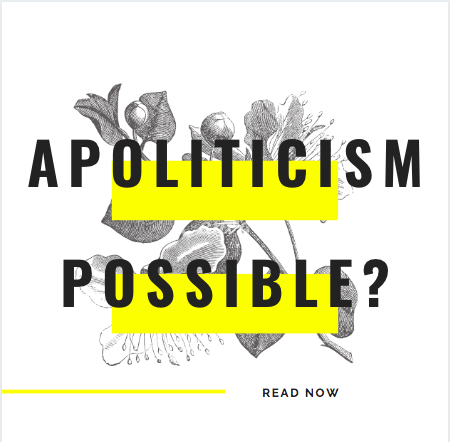The introduction of the Citizenship Amendment Act (CAA) and the proposition for a pan nation National Register of Citizens (NRC) has seen the rise of a political awakening in India. This legislature, while necessary as seen by the decades long immigration issue in Assam, also brings about the question of what it means to be Indian, especially under the current political ruling party – the BJP.
A topic as polarizing as this one has the tendency to creep into conversations, be it at the dinner table or in a science class, and people usually have one of three stances – for, against and the ever elusive “no opinion”.
This post will not be discussing the NRC and the CAA but rather – Is it possible to be apolitical? And what does it mean to be apolitical?
In my opinion people often confuse being political with being partisan.
The act of being partisan is to support one party over the other, basically it is taking a political stance. And in all fairness it can be difficult to choose a completely left or right winged ideology.
But a political stance is not the same as political action and this action is not limited by reposting on social media or attending rallies, rather it is part of our day to day activities.
A very good example of this is shown on the show – The Good Place. The premise of this show revolves around how no one has entered the good place/heaven in centuries because no matter how well centered the intentions are, the intrinsic and complex nature of any decision makes the net total negative.
Say you decided to buy a house – is it on deforested land, has is pushed out marginalized communities, were the components of the house derived carbon neutrally, was child labour involved in any part of the building process. These are all actions we take complacently and thus exert our influence on the political ecosystem.
Even in a direct, media focused sense, we are political beings. As soon as we receive information we form an opinion around the same. It is basic human instinct. By not divulging into that opinion further, we become a part of the majoritarian consensus whether we believe in it or not.
Finally, the ability to say “I am not into politics” comes from a place of privilege, it means that you are not directly negatively affected by outcomes of governance because of your socioeconomic status and/or by legally or religiously being a part of the majority population.
Logically, I believe an apolitical person does not exist. So the question now arises, how do we use our political identity.
